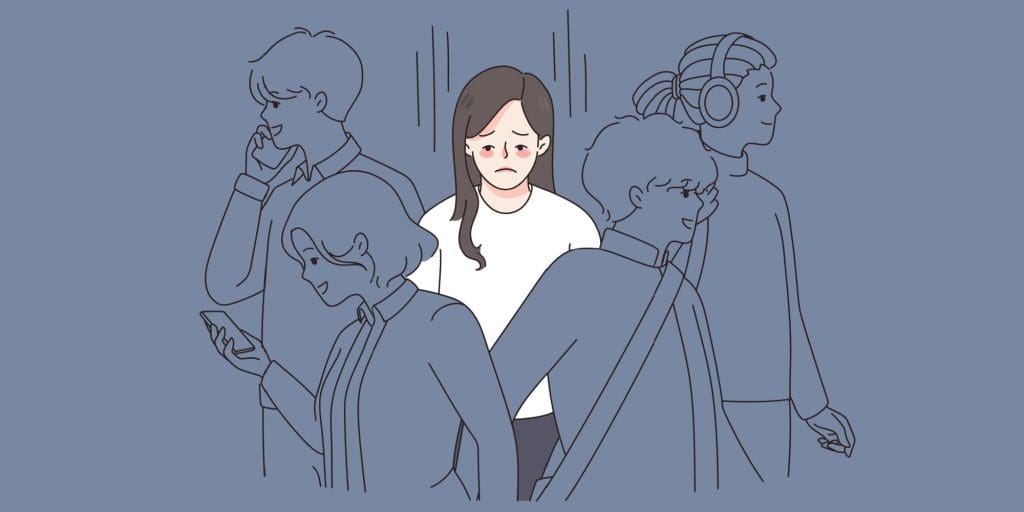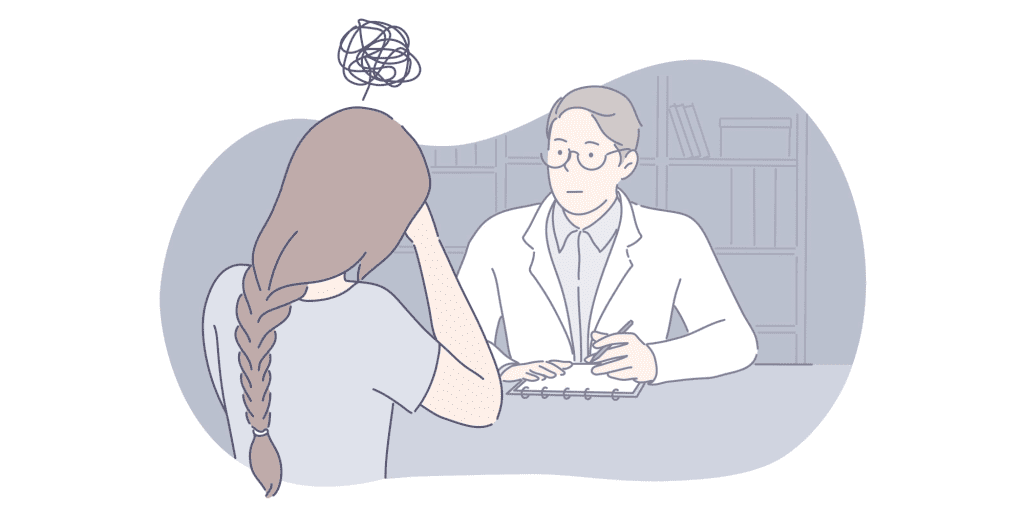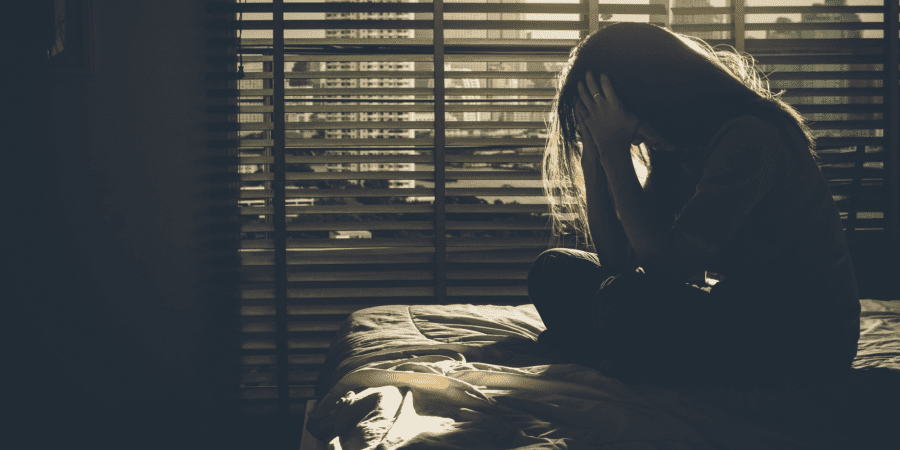When over 30 percent of adults in the United States exhibit at least one symptom of depression each week, it becomes difficult to gauge when to seek professional help. People who demonstrate a lack of motivation and struggle to complete household chores may ask, “Am I depressed or lazy?”
Many reasons can contribute to someone feeling lazy. It is important to assess these circumstances when determining whether there is cause for further concern. For some people, a “lazy day” is a simple act of self-care. For others, however, a long period of apparent “laziness” may suggest a deeper issue.
Depression is a mood disorder that affects over 17 million adults in the United States every year. Characterized by persistent feelings of sadness, emptiness, or aimlessness, it can have a major impact on someone’s productivity–and not by choice, or through any fault of their own.
The Stigma of Depression
One of the reasons someone may wonder, “Am I depressed or lazy?” involves the harsh stigmatization surrounding depression. Some individuals downplay the impact of depression. They might try to claim that “it’s all in your head” or that you should “just get over it.”
These harmful statements promote the idea that people with depression are lazy. They make it sound as though if someone simply tried hard enough, they would be able to overcome their symptoms.

In truth, recovering from a depressive episode often requires more than mere willpower. Depression is called a mental illness for a reason; much like healing from other illnesses, it requires careful, informed medical attention.
Ultimately, depression is not a choice. People bedridden by depression do not avoid their responsibilities to feel pleasure or because they want to. In fact, many people feel even more depressed or anxious when they struggle to finish tasks.
Am I Depressed or Lazy?
If you have determined that you aren’t asking, “Am I depressed or lazy?” due to the stigma surrounding depression, there are a few other factors to consider. Namely, it’s noteworthy that a lack of motivation and an inability to complete tasks aren’t the only signs of depression.
Other symptoms of depression include:
- Feeling sad, numb, or hopeless
- Fatigue
- Agitation or feeling slowed down
- Lack of interest or an inability to feel pleasure when engaging in hobbies
- Weight loss or gain
- Feelings of worthlessness or guilt
- Difficulty concentrating
- Thoughts of death or dying
Additionally, turning to substances like alcohol or drugs to cope with your feelings is a red flag of depression. Attempts to self-medicate can lead to substance abuse problems on top of mental illness.
Identifying “Laziness”
Pinning down an answer to, “Am I depressed or lazy?” may pose a challenge. In some ways, laziness is a subjective concept. Some people view it as an inherent personality trait or moral failing, while others believe it to be an active choice each time.
Either way, if you don’t experience any of the symptoms listed above, you may be in a temporary productivity slump unrelated to depression. Consider evaluating your current circumstances and trying to determine possible reasons for your lack of motivation and energy.
For example, do you feel overworked? Are you tired of the same routine? You may find that you have clear sources of stress you can then work to change.
In the meantime, you can take small actions to improve your productivity. Try to:
- Delete social media apps during the weekend
- Write a list of tasks you need to complete and check them off as you go
- Choose one chore to do each day
- Reward yourself for finishing tasks
- Break every task down into smaller, manageable steps
- Set a timer during breaks
However, if you try to make these changes and find that nothing helps, it may be time to ask for additional support after all. Even if it is not linked to depression, “laziness” can be a sign that something in your life needs a change. Keep in mind, too, that there is no shame in that. Mental health treatment exists to be utilized by those who need it.
Instead of asking, “Am I depressed or lazy?” consider reframing it as, “What can I do to improve my life?” For some, the answer might involve focusing on making necessary changes on their own. For people with depression, their path to improvement may require outside, professional help.
Diagnosing Depression

But what if you do experience other symptoms of depression? The diagnostic criteria for depression states that you only need to exhibit five symptoms to qualify for a major depression diagnosis. However, even if you only show two or three additional signs of depression, it is often still worth it to reach out for a professional opinion.
With that in mind, if you have encountered even a few of the above symptoms in the last two weeks, you could be experiencing a depressive episode. This does not make you lazy, weak, or a failure, but it does indicate a potential need for help.
If you are still unsure, The Blackberry Center offers a free mental health screening that only takes a few minutes to complete. Those asking, “Am I depressed or lazy?” may find that it helps them organize their symptoms. While it should not be used as a substitute for a professional diagnosis, it can help you gain a better understanding of your recent experiences.
What Should I Do If I’m Depressed?
After considering everything discussed above, you may believe the answer to “Am I depressed or lazy?” is that you are experiencing a depressive episode. In that case, a new question may take its place: What next?
Fortunately, there are many avenues to get help. The first action to take, and one of the most important, is to tell someone. For example, you may reach out to a family member or trusted friend and let them know how you feel. You can also contact a mental health professional or a treatment facility.
It’s crucial to start building a strong support network as early as you can. While they may not make your symptoms go away, having someone in your corner often makes a huge difference in your motivation and recovery potential.
Under no circumstances should you let the stigma of depression trick you into thinking that you should be able to “deal with it” on your own. Like many other medical conditions, depression improves with professional treatment. Scientists and physicians have spent decades researching the best ways to treat depression, and for valid reasons.
For a comprehensive program that combines all of the most effective treatment options, consider inpatient treatment. A residential mental health program introduces patients to numerous types of treatments, including talk therapy. Therapy stands as one of the most popular depression treatment methods and has proven its long-term efficacy.
During therapy sessions, patients learn skills such as healthy communication and emotional processing. Paired with other treatment modalities like medication education, inpatient treatment provides a full continuum of care. It exists to help people return to day-to-day life at a normal, healthy level of functioning.
Mental Health Treatment Near Orlando, Florida
If you ask, “Am I depressed or lazy?” then deep down you may already suspect something is wrong. Thankfully, professional help is out there to give you the tools and support you need. By utilizing the resources available, you can begin the journey toward recovery and overcome depression.
The Blackberry Center is a mental health facility in St. Cloud, Florida. We offer world-class treatment to people with depression, as well as other mental illnesses and substance use disorders. Patients in our care learn to manage their symptoms by developing vital coping skills and building long-lasting support groups.
Anyone who struggles with depression can get the help they need by reaching out to our admissions team. You can get in touch with a staff member by calling (813) 908-4199 or submitting a confidential contact form.
It may feel like an overwhelming hurdle blocks your path, but remember that millions of people fight this battle every day. Likewise, you don’t have to face it alone. The Blackberry Center is here to offer our full compassion and support.

